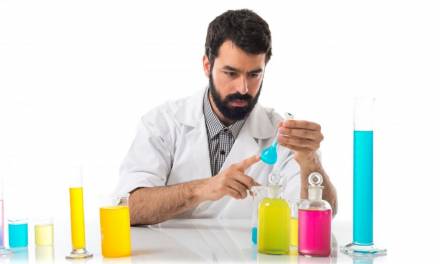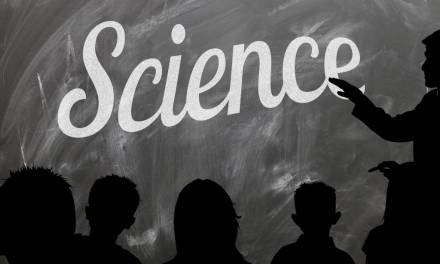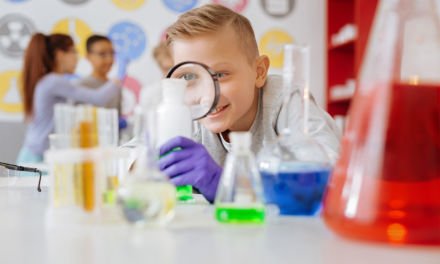Science is in the news every single day. From NHS stories, to issues with fracking, climate change, discoveries, nature and the solar system it is something which is unavoidable.
Science has benefits from helping us improve of way of life, our quality of life and helping others. It’s importance means it is compulsory from primary schools up to GCSE. To become a doctor it takes up to 14 years of training to become specialised.
In this unprecedented times, science is never out of the spotlight. And whether it’s chemistry, biology or physics you’re interested in – these unbelievable science facts will blow your mind.
20 unbelievable science facts
1: 50% of the world’s oxygen is produced by the sea: Our first thought may be the rainforest. But did you know half of the world’s oxygen is actually produced by plankton, seaweed and other ocean-based photosynthesis.
2: The human stomach can dissolve razor blades: Acids are ranked on a scale 0-14 (the lower the PH level, the stronger the acid). The human stomach is typically rated 1.0-2.0 meaning it is impeccably strong.
3: Animals use the magnetic field to know where they are: According to the U.S Geological Survey, “evidence suggests that some animals (including sea turtles) have the ability to sense the Earth’s magnetic field and to use this sense for navigation.”
4: There are more trees on the planet than stars in the solar system: According to experts from NASA, there are up to 400 billion stars in the milky way galaxy – but the number of trees on Earth is estimated to be more than 3 trillion.
5: One letter doesn’t exist in the periodic table: If you have studied science in KS3 it is highly likely you will have come across the periodic table. It contains a large number of letters (or multiple letters) associated with elements, but one letter in the alphabet doesn’t feature: the letter ‘J’.
6: Water can boil and freeze at the same time: What is known as ‘triple point‘ exists in science. It occurs when temperature and pressure is just right for three phases (gas, liquid and solid) of a substance to coexist in thermodynamic equilibrium.
7: Spacecraft are hurtling towards the edge of our solar system: The New Horizons place probe (which already flew past Pluto) is travelling at speeds of 36,000 mph. The SR-71 Blackbird (the fastest aircraft on earth) travels at speeds of 2,700 mph.
8: If you spin a ball as you drop it, it will fly: The Magnus effect occurs as the air on the front side of the spinning object is going in the same direction as the spin. The means the ball is dragged outwards as well as downwards. Watch the video below for more information.
9: Babies have more bones than adults: Babies have around 300 bones at birth. This extra flexibility means they pass through the birth canal and enable rapid growth. With age, many of the bones fuse. Most adults have 206 bones in their skeleton.
10: The Eiffel Tower grows in summer: As substances are heated up, particles move more and take up a larger volume. This effect is most dramatic in gases but it also affects liquids and solids too. It is the reason see bridges built with expansion points.
11: Some chemicals cannot live with oxygen: Potassium, sodium and lithium are so reactive that they oxidise when they come into contact with the air. This is because they are built with an outer electron shell, and alkali metals contain only one electron in this shell which they would pass on to an another element at the first opportunity via elemental bonding.
12: Hawaii moves closer to Alaska every year: The Earth’s crust is split into segments known as tectonic plates. Hot, less-dense rock rises before cooling and sinking. The consequence of this is a minute shifting of where rock (and the land above it) is placed. The Pacific Plate is drifting slowly north towards the North American Plate. Meaning it is around 7.5cm closer every year.
13: Life cannot exist on Earth in 2.3 billion years due to temperature: The Earth’s temperature is rising every year, as discussed in our recent climate change blog post. In this time period, temperatures will be high enough to evaporate the oceans, and Earth will become a vast desert, similar to Mars today.
14: It takes eight minutes for light to travel from the Sun to Earth: Light travels 300,000km per second. There is around 150 million kilometres between us and the Sun, so this equals around 8 minutes, 19 seconds.
15: Infrared cameras don’t really work on polar bears: Polar bears are experts at conserving heat. They have mulitiple levels to keep them cosy on the chillest on arctic day.
16: The Earth is a magnet: The inner core of Earth is a sphere of solid iron. Variation in temperature and density currents this iron, and produces electrical current. Alongside the Earth’s spin this creates a magnetic field which is used by compass needles worldwide.
17: Venus spins clockwise: Most planets spin anti-clockwise if viewed from above, including the Earth. However there are two exceptions: Uranus spins on it’s side, and Venus’ spin is clockwise. This is likely to have been caused by gigantic asteroids in the distant past.
18: A flea can accelerate faster than a space shuttle: A jumping flea reaches heights of about 8cm in a milli-second. Acceleration is the change in speed of an object over time as caused by gravity (measured in g’s). Fleas experience 100g whereas the Space Shuttle peaks at around 5g.
19: 9 out of ten heaviest people ever were American: The heaviest weight of a person ever recorded was Jon Brower Minnoch, born in 1941 and weighing 636kg. In fact, in records dating back 250 years, nine out of the top 10 heaviest people were from the United States. The exception, Manuel Uribe from Mexico. You can see the list here.
20: Tornadoes also has the USA at number one: The USA also experiences more tornadoes than any other country in the world, to the extent there is one section in the centre of the ‘States’ known as Tornado Valley.
Build your science understanding with EDClass
EDClass is a perfect solution for those students who are struggling to access mainstream education due to their personal circumstances. The system allows students to learn in a comfortable learning environment with engaging Science video lessons and also one-to-one support from UK-qualified teachers.
EDClass is a trusted DfE-accredited provider of online education and the ERA Supplier of the Year 2025!
To book a free online demonstration of the EDClass platform then click here. The team are on-hand to answer any queries, contact 01909 568 338 or send an email to mail@edclass.com.










